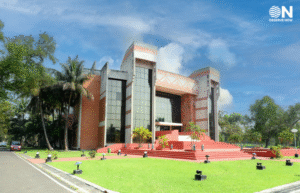The growth of digital-native businesses (DNBs) in India has been a remarkable journey, shaped by significant macroeconomic shifts. It all began in 2007 with the first wave of online retail, laying the foundation for a digital economy. By 2011, digital brands started to emerge, driven by increasing internet penetration and consumer demand. The widespread adoption of internet services in 2016 further fueled the rise of internet-first brands, marking a new era of online retail. The introduction of digital payment platforms revolutionized transactions, making online shopping more accessible and secure. By 2019, a supportive ecosystem had enabled even more DNBs to enter the market, solidifying their presence in the Indian economy. The COVID-19 pandemic further accelerated this shift, reshaping consumer behavior and reinforcing investor confidence in digital-first business models.
In light of these developments, ObserveNow Media is all set to roll out the 2nd Edition of the Super 40 Digital Native Summit & Awards, presented by Niveus Solutions/Google Cloud, Co-presented by Zscaler, and powered by MongoDB. The mega event, set to take place in Bangalore, promises to be a significant gathering of industry leaders, innovators, and digital-native trailblazers. This one-day event will feature multiple panel discussions and industry presentations, offering a platform for in-depth discussions on the future of digital-native businesses.
The theme of the event, “AI-Powered Transformation: The Digital Native Imperative,” will focus on how artificial intelligence is driving the next wave of innovation and growth for digital-native businesses. The event will serve as an opportunity for industry leaders to explore how AI can be harnessed to create new opportunities, overcome challenges, and sustain growth in an increasingly digital world.
The event will also showcase a diverse range of partners, including Imperva as the Data & Application Partner, Hitachi as the Data Innovation Partner, CtrlS as the Technology Partner, Truecaller Business as the Trust and Safety Partner, Karnataka Digital Economy Mission as the Strategic Partner, and MeitY Startup Hub as the Supporting Partner.
The day will begin with a welcome note by Riya Adlakha, Assistant Editor at ObserveNow, setting the stage for a day filled with insightful discussions and knowledge sharing. Saurabh K Mehta, Head of Growth Startups, India South, Google Cloud, will deliver the keynote address, providing an overview of the current landscape and the future of digital-native businesses.
The first panel discussion, titled “Decoding the Tech-Enthused Mind: Investigating the Mindset of Brands Building for the Modern Indian Consumer,” will feature a distinguished panel of industry leaders, including Vaibhav Tewari, Co-founder & CEO of Portea Medical, and Abhishek Kumar, Co-founder & CTO of Xoxoday. This session will be moderated by Jaspreet Singh, Partner and Clients and Markets Leader – Advisory Services at Grant Thornton Bharat LLP.
The second panel discussion, “Embracing Zero Trust Security for Navigating the Cybersecurity Landscape,” will focus on the critical issue of cybersecurity in the digital age. Esteemed panellists such as Suresh Sharma, CISO at PayU, and Mohit Srivastava, CISO & DPO at Perfios Software Solutions Pvt. Ltd, will share their insights on the importance of zero-trust security models. Piyush Bajpai, Director, Cyber, Technology & Transformation at Deloitte Touche Tohmatsu India LLP, will moderate the session.
The third panel discussion, “Cloud Migration and Digital Transformation: The Digital Native Approach,” will delve into the strategies and challenges associated with cloud migration for digital-native businesses. Panellists will include Ishaan Bansal, CTO of Bolt.Earth, and Navneet Kumar, CTO of CARD91, with Jithendran C K, CTO of Blubirch, moderating the discussion.
The final panel discussion of the day, “Generative AI & the Future of Innovation for Digital Natives: Navigating Opportunities and Challenges,” will explore the transformative potential of generative AI. Industry leaders such as Amar P, Co-founder & CTO of Rupeek, and Rajamohan, CTO of Bonito Designs, will participate in this session, moderated by Aditya Nanda, Regional VP-DNB & Mid Market at MongoDB.
In addition to the panel discussions, the event will feature industry presentations where experts will share valuable insights into the digital-native sector. The day will conclude with an awards ceremony, recognizing and honoring the leading stars in the digital-native sectors, celebrating their contributions to the digital economy.
As the digital-native landscape continues to evolve, events like the Super 40 Digital Native Summit & Awards play a crucial role in fostering collaboration, innovation, and knowledge-sharing among industry leaders. This summit not only highlights the current trends and challenges but also sets the stage for the future of digital businesses in India. By bringing together key stakeholders from various sectors, the event aims to inspire new ideas, forge strategic partnerships, and drive the next phase of growth for digital-native companies in the country.
























